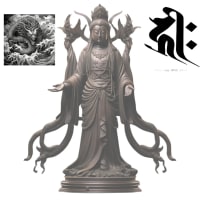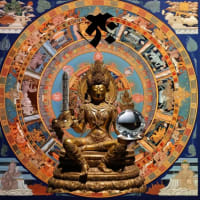ここが政治の分かれ道 新型コロナ ユヴァル・ノア・ハラリさん
新型コロナウイルスによる感染症の脅威に世界中がすくんでいる。私たちはどう立ち向かうべきなのか。人類史を問い直し、未来を大胆に読み解く著作で知られるイスラエルの歴史学者、ユヴァル・ノア・ハラリさんが電話でのインタビューに応じた。今まさに分かれ道にさしかかっている、と言う。
――ウイルスの感染拡大で、私たちはどのような課題に直面していると考えますか。
「世界は政治の重大局面にあります。ウイルスの脅威に対応するには、さまざまな政治判断が求められるからです」
「まず国際的な連帯で危機を乗り切るという選択肢があります。すべての国が情報や医療資源を共有し、互いを経済的に助け合う方法です。他方で、国家的な孤立主義の道を選ぶこともできる。他国と争い、情報共有を拒み、貴重な資源を奪い合う道です。どちらの選択も可能で、政治判断に委ねられています」
「また、ある国はすべての権力を独裁者に与えるかもしれない。別の国では民主的な制度を維持し、権力に対するチェックとバランスを重視する道を選ぶでしょう。すべてにおいて明確な答えはなく、政治に委ねられます。だから私は現状が医療だけでなく政治の重大局面だと定義するのです」
――独裁と民主主義のうち、どちらが感染症の脅威にうまく対応しているでしょうか。
「日本や韓国、台湾のような東アジアの民主主義は、比較的うまく対処してきました。しかし、イタリアや米国は同じ民主主義でも状況ははるかに悪い」
「独裁体制でも中国は、うまくやっているように見えます。中国がもっと開かれた民主主義の体制であれば、最初の段階で流行を防げたかもしれない。ただ、その後の数カ月を見れば、中国は米国よりもはるかにうまく対処しています。一方でイランやトルコといった他の独裁や権威主義体制は失敗している。報道の自由がなく、政府が感染拡大の情報をもみ消しているのが原因です」
――どちらの政治体制が望ましいとも言えないわけですか。
「長い目で見ると民主主義の方が危機にうまく対応できるでしょう。理由は二つあります」
「情報を得て自発的に行動できる人間は、警察の取り締まりを受けて動く無知な人間に比べて危機にうまく対処できます。数百万人に手洗いを徹底させたい場合、人々に信頼できる情報を与えて教育する方が、すべてのトイレに警察官とカメラを配置するより簡単でしょう」
「独裁の場合は、誰にも相談をせずに決断し、速く行動することができる。しかし、間違った判断をした場合はメディアを使って問題を隠し、誤った政策に固執するものです。これに対し、民主主義体制では政府が誤りを認めることがより容易になる。報道の自由と市民の圧力があるからです」
■ ■
――市民への監視や管理を強めた中国の手法が成功例とされることは、どう考えますか。
「新技術を使った監視には反対しないし、感染症との闘いには監視も必要です。重要なのは、監視の権限を警察や軍、治安機関に与えないこと。独立した保健機関を設立して監視を担わせ、感染症対策のためだけにデータを保管することが望ましいでしょう」
「独裁体制では、監視は一方通行でしかない。中国では、人々がどこに行くのかについて政府は知っていますが、政府の意思決定の経緯について人々は何も知りません。これに対し民主主義には、市民が政府を監視する機能がある。何が起き、誰が判断をして、誰がお金を得ているのかを市民が理解できるなら、それは十分に民主的です」
――日本は私権の制限に慎重で、民主主義を守りながら対応をしています。しかし国民が不安に駆られ、より強い政府を求める声も出ています。
「政府に断固とした行動を求めることは民主主義に反しません。緊急時には民主主義でも素早く決断して動くことができる。政府からの情報を人々がより信頼できるという利点もある。政府が緊急措置をとるために独裁になる必要はありません」
■ ■
――感染が一気に拡大したのはグローバル化の弊害だという指摘をどうみますか。
「感染症は、はるか昔から存在していました。中世にはペストが東アジアから欧州に広まった。グローバル化がなければ感染症は流行しないと考えるのは、間違いです。文化も街もない石器時代に戻るわけにはいきません」
「むしろ、グローバル化は感染症との闘いを助けるでしょう。感染症に対する最大の防御は孤立ではありません。必要なのは、国家間で感染拡大やワクチン開発についての信頼できる情報を共有することです」
「中国の湖北省武漢市では封鎖を解除し、人々が仕事に戻ろうとしています。今後数カ月のうちに各国が挑戦する課題です。中国人にはぜひ、湖北省であったことについて、信頼できる情報を提供して欲しい。その経験から、他の国々は学ぶことができます」
――各国は国境を封鎖し、グローバル化に逆行しているようにも見えます。
「国境封鎖とグローバル化は矛盾しません。封鎖と同時に助け合うこともできます。願わくば、家族のようになれたらいい。私は自分の家にいて、2人の姉妹も母もそれぞれの家にいます。会わないけれども毎日電話し、危機が過ぎたら再会したいと願っています。国家間も同じだと思うのです。確かにいまは隔離が必要です。でも憎しみや非難の心ではなく、協力の心のもとで隔離するのです」
――米国の自国第一主義やブレグジットに象徴されるように、協調路線には反対論も根強い。この流れが変わるでしょうか。
「分かりません。ただ前向きな兆しはあります。欧州連合(EU)では人工呼吸器やマスクの製造、配分へ向けた協力の試みがみられます。ドイツが周辺国の患者を受け入れた例もあります。専門家が行き来し、治療薬を開発しようとしています」
「今回はEUにとって大きな試練です。連帯を実現できればEUを強くすることができるでしょう。英国がブレグジットから戻ってくることだってあるかもしれない。危機の中でこそ、EUは価値を証明できる可能性があるのです。米国がリーダーシップをとらないなら、EUや日本、中国、ブラジルや他の国々が一緒になって立ち上がることを望みます」
――各国は自国内の対応で精いっぱいかもしれません。
「感染症は全世界が共有するリスクだと考える必要があります。たとえば日本からウイルスが消え、しかし、南米のブラジルやペルー、エクアドルで流行が続いているとしましょう。ウイルスが人類の体内にいる限り、突然変異する可能性がある。より致死的になったり、感染力が強まったりして、あなたの国に戻ってくる。そして、さらに深刻な流行を引き起こすのです」
「1918年のスペイン風邪の流行は一度では終わりませんでした。18年春には第1波が世界中で流行しましたが、死亡した人は少なかった。その後、ウイルスが突然変異し、18年夏から感染が広がった第2波で死亡率は5~10%、国によっては20%に上りました。さらに第3波もありました。一つの国が感染に苦しんでいる限り、どの国も安全でいることはできない。これが、我々が直面している最大の脅威なのです」
■ ■
――世界にはどんな変化が起きているのでしょうか。
「危機の中で、社会は非常に速いスピードで変わる可能性があります。よい兆候は、世界の人々が専門家の声に耳を傾け始めていることです。科学者たちをエリートだと非難してきたポピュリスト政治家たちも科学的な指導に従いつつあります。危機が去っても、その重要性を記憶することが大切です。気候変動問題でも、専門家の声を聞くようになって欲しいと思います」
――よい変化だけでしょうか。
「悪い変化も起きます。我々にとって最大の敵はウイルスではない。敵は心の中にある悪魔です。憎しみ、強欲さ、無知。この悪魔に心を乗っ取られると、人々は互いを憎み合い、感染をめぐって外国人や少数者を非難し始める。これを機に金もうけを狙うビジネスがはびこり、無知によってばかげた陰謀論を信じるようになる。これらが最大の危険です」
「我々はそれを防ぐことができます。この危機のさなか、憎しみより連帯を示すのです。強欲に金もうけをするのではなく、寛大に人を助ける。陰謀論を信じ込むのではなく、科学や責任あるメディアへの信頼を高める。それが実現できれば、危機を乗り越えられるだけでなく、その後の世界をよりよいものにすることができるでしょう。我々はいま、その分岐点の手前に立っているのです」(聞き手・高野遼)
*
ヘブライ大学教授・歴史学者 1976年、イスラエル生まれ。
This is a political branch, the new Corona Yuval Noah Harari
The world is scooping up on the threat of infectious diseases caused by the new coronavirus. How should we confront? Yuval Noah Harari, an Israeli historian who is known for his work that reexamines human history and boldly reads the future, responded to a telephone interview. He said he was about to make a fork.
――What challenges do you think we are facing with the spread of the virus?
"The world is in a critical phase of politics, as different political decisions are required to respond to the threat of viruses."
“The first option is to survive the crisis with international solidarity. It is a way for all countries to share information and health resources and help each other financially. On the other hand, there is also the option of national isolationism. Yes, it's a path to fight with other countries, refuse information sharing, and compete for valuable resources. Either choice is possible and it's up to the political decision. ”
"In addition, one nation may give all power to the dictator. Another nation will choose to maintain a democratic institution and focus on checks and balances against power. Instead, it's up to politics, so I define it as a critical phase of politics, not just medical care. "
――Which of dictatorship and democracy responds well to the threat of infectious diseases?
"East Asian democracies like Japan, South Korea and Taiwan have managed relatively well. But the situation is much worse for Italy and the US with the same democracy."
"In the dictatorship, China also seems to be doing well. If China had a more open democratic regime, it might have prevented the epidemic in the first place, but in the months that followed. China is handling it much better than the US, while other dictatorships and authoritarian regimes such as Iran and Turkey are failing: lack of press freedom and the government smearing out the spread Is due to
――Isn't it possible to say which political system is preferable?
"In the long run, democracy will be better at responding to the crisis. There are two reasons."
"People who are informed and willing to take action are better able to deal with the crisis than ignorant people who move under police crackdown. If you want millions of people to wash their hands thoroughly, you can rely on reliable information. It would be easier to give and educate them than to have police and cameras in every toilet. ''
"In the case of dictatorship, you can make decisions and act fast without consulting anyone, but if you make a wrong decision, you use the media to hide the problem and stick to the wrong policy. In contrast, a democratic system makes it easier for the government to admit errors because of the freedom of the press and the pressure of the public. "
■■■
--What do you think about the success of the Chinese method of strengthening the monitoring and management of citizens?
"We do not oppose surveillance using new technologies, and we also need surveillance to fight infectious diseases. The important thing is not to give police, military, or security agencies the power to monitor. It would be better to have the data monitored and to keep the data only for infection control. ''
"In dictatorship, surveillance is only one-way. In China, the government knows where people go, but they don't know anything about how the government made decisions. Has the ability for citizens to oversee the government. If they can understand what happens, who makes their decisions and who is making money, it's democratic enough. "
--Japan is cautious about restrictions on private rights and responds while protecting democracy. However, people are worried and there are voices calling for a stronger government.
"Calling the government for decisive action is not against democracy. In an emergency, democracy can make quick decisions and move. It also has the advantage that people can trust the information from the government. You don't have to be dictator to take action. ''
■■■
――What do you think of the fact that the global spread of the infection was a negative effect of globalization?
“Infectious diseases have been around for a long time. In the Middle Ages, the plague spread from East Asia to Europe. It's a mistake to assume that without globalization, infectious diseases would not be endemic. There is no culture or city. We can't go back to the Stone Age. ''
“Rather, globalization will help fight infectious diseases. The greatest defense against infectious diseases is not isolation. What we need is to share credible information about infection spread and vaccine development between countries.”
“In Wuhan City, Hubei Province of China, people are trying to get rid of the blockade and get back to work. It's a challenge that countries will face in the coming months. Please provide us with information that we can and other countries can learn from that experience. "
--Each country seems to be blocking the borders and going against globalization.
"Border blockade and globalization are not inconsistent. You can help each other at the same time as the blockade. Hopefully you can be like a family. I'm in my own house, two sisters and my mother are in each house. I don't see you, but I call you every day and hope to see you again when the crisis passes. I think the same between nations. I think we need isolation now, but not hate or blame, but cooperation. Isolate in the heart of
-As symbolized by America's own country first principle and Brexit, there are also strong arguments against cooperative lines. Will this flow change?
"I don't know, but there are positive signs. In the European Union (EU), there are attempts to cooperate in the manufacture and distribution of ventilators and masks. In some cases, Germany has accepted patients from neighboring countries. Experts are coming and going to develop therapeutics. ”
“This time is a big test for the EU. If solidarity can be achieved, it can strengthen the EU. Maybe Britain will come back from Brexit. In a crisis, the EU can prove its worth. If the United States does not take leadership, we hope that the EU, Japan, China, Brazil and other countries will come together to stand up. "
――Each country may be full of domestic response.
“You have to think of infectious diseases as a global risk. For example, let's say the virus has disappeared from Japan, but the epidemic continues in Brazil, Peru and Ecuador in South America. As long as the virus is in the human body , Can be mutated. It becomes more lethal and becomes more infectious and then returns to your country, causing an even more serious epidemic. "
"The 1918 Spanish flu epidemic never ended. The first wave was prevalent in the spring of 18 worldwide, but few died. Later, the virus mutated and the summer of 18 Mortality rate was 5-10% in some countries, 20% in some countries, and there was a third wave, etc. As long as one country suffers from infection, any country is safe. It's the biggest threat we face. ”
■■■
--What kind of change is happening in the world?
“In a crisis, societies can change very fast. A good sign is that people all over the world are beginning to listen to the voices of experts. They have accused scientists of being elite. Populist politicians are also following the scientific guidance. It is important to remember the importance of the crisis even after it has passed. I hope to hear the voices of experts even in climate change issues. "
-Is it just a good change?
"Bad change will also happen. Our biggest enemy is not the virus. The enemy is the devil in our hearts. Hate, greed, ignorance. When this devil takes over the heart, people hate each other, It begins to blame foreigners and minorities over the infection, and this inspires businesses to make money and believes in ridiculous conspiracy theories. These are the biggest dangers. ”
“We can prevent it. During this crisis, we show solidarity rather than hate. We don't make money for greed, we help people generously. Instead of believing in conspiracy theory, we are going to science and responsible media. If we can do that, we can not only survive the crisis, but also improve the world after that. We are now at the forefront of that forking point. "( (Interviewer: Ryo Takano)
*
Hebrew University Professor and Historian Born in Israel in 1976. In Japanese translation
新型コロナウイルスによる感染症の脅威に世界中がすくんでいる。私たちはどう立ち向かうべきなのか。人類史を問い直し、未来を大胆に読み解く著作で知られるイスラエルの歴史学者、ユヴァル・ノア・ハラリさんが電話でのインタビューに応じた。今まさに分かれ道にさしかかっている、と言う。
――ウイルスの感染拡大で、私たちはどのような課題に直面していると考えますか。
「世界は政治の重大局面にあります。ウイルスの脅威に対応するには、さまざまな政治判断が求められるからです」
「まず国際的な連帯で危機を乗り切るという選択肢があります。すべての国が情報や医療資源を共有し、互いを経済的に助け合う方法です。他方で、国家的な孤立主義の道を選ぶこともできる。他国と争い、情報共有を拒み、貴重な資源を奪い合う道です。どちらの選択も可能で、政治判断に委ねられています」
「また、ある国はすべての権力を独裁者に与えるかもしれない。別の国では民主的な制度を維持し、権力に対するチェックとバランスを重視する道を選ぶでしょう。すべてにおいて明確な答えはなく、政治に委ねられます。だから私は現状が医療だけでなく政治の重大局面だと定義するのです」
――独裁と民主主義のうち、どちらが感染症の脅威にうまく対応しているでしょうか。
「日本や韓国、台湾のような東アジアの民主主義は、比較的うまく対処してきました。しかし、イタリアや米国は同じ民主主義でも状況ははるかに悪い」
「独裁体制でも中国は、うまくやっているように見えます。中国がもっと開かれた民主主義の体制であれば、最初の段階で流行を防げたかもしれない。ただ、その後の数カ月を見れば、中国は米国よりもはるかにうまく対処しています。一方でイランやトルコといった他の独裁や権威主義体制は失敗している。報道の自由がなく、政府が感染拡大の情報をもみ消しているのが原因です」
――どちらの政治体制が望ましいとも言えないわけですか。
「長い目で見ると民主主義の方が危機にうまく対応できるでしょう。理由は二つあります」
「情報を得て自発的に行動できる人間は、警察の取り締まりを受けて動く無知な人間に比べて危機にうまく対処できます。数百万人に手洗いを徹底させたい場合、人々に信頼できる情報を与えて教育する方が、すべてのトイレに警察官とカメラを配置するより簡単でしょう」
「独裁の場合は、誰にも相談をせずに決断し、速く行動することができる。しかし、間違った判断をした場合はメディアを使って問題を隠し、誤った政策に固執するものです。これに対し、民主主義体制では政府が誤りを認めることがより容易になる。報道の自由と市民の圧力があるからです」
■ ■
――市民への監視や管理を強めた中国の手法が成功例とされることは、どう考えますか。
「新技術を使った監視には反対しないし、感染症との闘いには監視も必要です。重要なのは、監視の権限を警察や軍、治安機関に与えないこと。独立した保健機関を設立して監視を担わせ、感染症対策のためだけにデータを保管することが望ましいでしょう」
「独裁体制では、監視は一方通行でしかない。中国では、人々がどこに行くのかについて政府は知っていますが、政府の意思決定の経緯について人々は何も知りません。これに対し民主主義には、市民が政府を監視する機能がある。何が起き、誰が判断をして、誰がお金を得ているのかを市民が理解できるなら、それは十分に民主的です」
――日本は私権の制限に慎重で、民主主義を守りながら対応をしています。しかし国民が不安に駆られ、より強い政府を求める声も出ています。
「政府に断固とした行動を求めることは民主主義に反しません。緊急時には民主主義でも素早く決断して動くことができる。政府からの情報を人々がより信頼できるという利点もある。政府が緊急措置をとるために独裁になる必要はありません」
■ ■
――感染が一気に拡大したのはグローバル化の弊害だという指摘をどうみますか。
「感染症は、はるか昔から存在していました。中世にはペストが東アジアから欧州に広まった。グローバル化がなければ感染症は流行しないと考えるのは、間違いです。文化も街もない石器時代に戻るわけにはいきません」
「むしろ、グローバル化は感染症との闘いを助けるでしょう。感染症に対する最大の防御は孤立ではありません。必要なのは、国家間で感染拡大やワクチン開発についての信頼できる情報を共有することです」
「中国の湖北省武漢市では封鎖を解除し、人々が仕事に戻ろうとしています。今後数カ月のうちに各国が挑戦する課題です。中国人にはぜひ、湖北省であったことについて、信頼できる情報を提供して欲しい。その経験から、他の国々は学ぶことができます」
――各国は国境を封鎖し、グローバル化に逆行しているようにも見えます。
「国境封鎖とグローバル化は矛盾しません。封鎖と同時に助け合うこともできます。願わくば、家族のようになれたらいい。私は自分の家にいて、2人の姉妹も母もそれぞれの家にいます。会わないけれども毎日電話し、危機が過ぎたら再会したいと願っています。国家間も同じだと思うのです。確かにいまは隔離が必要です。でも憎しみや非難の心ではなく、協力の心のもとで隔離するのです」
――米国の自国第一主義やブレグジットに象徴されるように、協調路線には反対論も根強い。この流れが変わるでしょうか。
「分かりません。ただ前向きな兆しはあります。欧州連合(EU)では人工呼吸器やマスクの製造、配分へ向けた協力の試みがみられます。ドイツが周辺国の患者を受け入れた例もあります。専門家が行き来し、治療薬を開発しようとしています」
「今回はEUにとって大きな試練です。連帯を実現できればEUを強くすることができるでしょう。英国がブレグジットから戻ってくることだってあるかもしれない。危機の中でこそ、EUは価値を証明できる可能性があるのです。米国がリーダーシップをとらないなら、EUや日本、中国、ブラジルや他の国々が一緒になって立ち上がることを望みます」
――各国は自国内の対応で精いっぱいかもしれません。
「感染症は全世界が共有するリスクだと考える必要があります。たとえば日本からウイルスが消え、しかし、南米のブラジルやペルー、エクアドルで流行が続いているとしましょう。ウイルスが人類の体内にいる限り、突然変異する可能性がある。より致死的になったり、感染力が強まったりして、あなたの国に戻ってくる。そして、さらに深刻な流行を引き起こすのです」
「1918年のスペイン風邪の流行は一度では終わりませんでした。18年春には第1波が世界中で流行しましたが、死亡した人は少なかった。その後、ウイルスが突然変異し、18年夏から感染が広がった第2波で死亡率は5~10%、国によっては20%に上りました。さらに第3波もありました。一つの国が感染に苦しんでいる限り、どの国も安全でいることはできない。これが、我々が直面している最大の脅威なのです」
■ ■
――世界にはどんな変化が起きているのでしょうか。
「危機の中で、社会は非常に速いスピードで変わる可能性があります。よい兆候は、世界の人々が専門家の声に耳を傾け始めていることです。科学者たちをエリートだと非難してきたポピュリスト政治家たちも科学的な指導に従いつつあります。危機が去っても、その重要性を記憶することが大切です。気候変動問題でも、専門家の声を聞くようになって欲しいと思います」
――よい変化だけでしょうか。
「悪い変化も起きます。我々にとって最大の敵はウイルスではない。敵は心の中にある悪魔です。憎しみ、強欲さ、無知。この悪魔に心を乗っ取られると、人々は互いを憎み合い、感染をめぐって外国人や少数者を非難し始める。これを機に金もうけを狙うビジネスがはびこり、無知によってばかげた陰謀論を信じるようになる。これらが最大の危険です」
「我々はそれを防ぐことができます。この危機のさなか、憎しみより連帯を示すのです。強欲に金もうけをするのではなく、寛大に人を助ける。陰謀論を信じ込むのではなく、科学や責任あるメディアへの信頼を高める。それが実現できれば、危機を乗り越えられるだけでなく、その後の世界をよりよいものにすることができるでしょう。我々はいま、その分岐点の手前に立っているのです」(聞き手・高野遼)
*
ヘブライ大学教授・歴史学者 1976年、イスラエル生まれ。
This is a political branch, the new Corona Yuval Noah Harari
The world is scooping up on the threat of infectious diseases caused by the new coronavirus. How should we confront? Yuval Noah Harari, an Israeli historian who is known for his work that reexamines human history and boldly reads the future, responded to a telephone interview. He said he was about to make a fork.
――What challenges do you think we are facing with the spread of the virus?
"The world is in a critical phase of politics, as different political decisions are required to respond to the threat of viruses."
“The first option is to survive the crisis with international solidarity. It is a way for all countries to share information and health resources and help each other financially. On the other hand, there is also the option of national isolationism. Yes, it's a path to fight with other countries, refuse information sharing, and compete for valuable resources. Either choice is possible and it's up to the political decision. ”
"In addition, one nation may give all power to the dictator. Another nation will choose to maintain a democratic institution and focus on checks and balances against power. Instead, it's up to politics, so I define it as a critical phase of politics, not just medical care. "
――Which of dictatorship and democracy responds well to the threat of infectious diseases?
"East Asian democracies like Japan, South Korea and Taiwan have managed relatively well. But the situation is much worse for Italy and the US with the same democracy."
"In the dictatorship, China also seems to be doing well. If China had a more open democratic regime, it might have prevented the epidemic in the first place, but in the months that followed. China is handling it much better than the US, while other dictatorships and authoritarian regimes such as Iran and Turkey are failing: lack of press freedom and the government smearing out the spread Is due to
――Isn't it possible to say which political system is preferable?
"In the long run, democracy will be better at responding to the crisis. There are two reasons."
"People who are informed and willing to take action are better able to deal with the crisis than ignorant people who move under police crackdown. If you want millions of people to wash their hands thoroughly, you can rely on reliable information. It would be easier to give and educate them than to have police and cameras in every toilet. ''
"In the case of dictatorship, you can make decisions and act fast without consulting anyone, but if you make a wrong decision, you use the media to hide the problem and stick to the wrong policy. In contrast, a democratic system makes it easier for the government to admit errors because of the freedom of the press and the pressure of the public. "
■■■
--What do you think about the success of the Chinese method of strengthening the monitoring and management of citizens?
"We do not oppose surveillance using new technologies, and we also need surveillance to fight infectious diseases. The important thing is not to give police, military, or security agencies the power to monitor. It would be better to have the data monitored and to keep the data only for infection control. ''
"In dictatorship, surveillance is only one-way. In China, the government knows where people go, but they don't know anything about how the government made decisions. Has the ability for citizens to oversee the government. If they can understand what happens, who makes their decisions and who is making money, it's democratic enough. "
--Japan is cautious about restrictions on private rights and responds while protecting democracy. However, people are worried and there are voices calling for a stronger government.
"Calling the government for decisive action is not against democracy. In an emergency, democracy can make quick decisions and move. It also has the advantage that people can trust the information from the government. You don't have to be dictator to take action. ''
■■■
――What do you think of the fact that the global spread of the infection was a negative effect of globalization?
“Infectious diseases have been around for a long time. In the Middle Ages, the plague spread from East Asia to Europe. It's a mistake to assume that without globalization, infectious diseases would not be endemic. There is no culture or city. We can't go back to the Stone Age. ''
“Rather, globalization will help fight infectious diseases. The greatest defense against infectious diseases is not isolation. What we need is to share credible information about infection spread and vaccine development between countries.”
“In Wuhan City, Hubei Province of China, people are trying to get rid of the blockade and get back to work. It's a challenge that countries will face in the coming months. Please provide us with information that we can and other countries can learn from that experience. "
--Each country seems to be blocking the borders and going against globalization.
"Border blockade and globalization are not inconsistent. You can help each other at the same time as the blockade. Hopefully you can be like a family. I'm in my own house, two sisters and my mother are in each house. I don't see you, but I call you every day and hope to see you again when the crisis passes. I think the same between nations. I think we need isolation now, but not hate or blame, but cooperation. Isolate in the heart of
-As symbolized by America's own country first principle and Brexit, there are also strong arguments against cooperative lines. Will this flow change?
"I don't know, but there are positive signs. In the European Union (EU), there are attempts to cooperate in the manufacture and distribution of ventilators and masks. In some cases, Germany has accepted patients from neighboring countries. Experts are coming and going to develop therapeutics. ”
“This time is a big test for the EU. If solidarity can be achieved, it can strengthen the EU. Maybe Britain will come back from Brexit. In a crisis, the EU can prove its worth. If the United States does not take leadership, we hope that the EU, Japan, China, Brazil and other countries will come together to stand up. "
――Each country may be full of domestic response.
“You have to think of infectious diseases as a global risk. For example, let's say the virus has disappeared from Japan, but the epidemic continues in Brazil, Peru and Ecuador in South America. As long as the virus is in the human body , Can be mutated. It becomes more lethal and becomes more infectious and then returns to your country, causing an even more serious epidemic. "
"The 1918 Spanish flu epidemic never ended. The first wave was prevalent in the spring of 18 worldwide, but few died. Later, the virus mutated and the summer of 18 Mortality rate was 5-10% in some countries, 20% in some countries, and there was a third wave, etc. As long as one country suffers from infection, any country is safe. It's the biggest threat we face. ”
■■■
--What kind of change is happening in the world?
“In a crisis, societies can change very fast. A good sign is that people all over the world are beginning to listen to the voices of experts. They have accused scientists of being elite. Populist politicians are also following the scientific guidance. It is important to remember the importance of the crisis even after it has passed. I hope to hear the voices of experts even in climate change issues. "
-Is it just a good change?
"Bad change will also happen. Our biggest enemy is not the virus. The enemy is the devil in our hearts. Hate, greed, ignorance. When this devil takes over the heart, people hate each other, It begins to blame foreigners and minorities over the infection, and this inspires businesses to make money and believes in ridiculous conspiracy theories. These are the biggest dangers. ”
“We can prevent it. During this crisis, we show solidarity rather than hate. We don't make money for greed, we help people generously. Instead of believing in conspiracy theory, we are going to science and responsible media. If we can do that, we can not only survive the crisis, but also improve the world after that. We are now at the forefront of that forking point. "( (Interviewer: Ryo Takano)
*
Hebrew University Professor and Historian Born in Israel in 1976. In Japanese translation
























